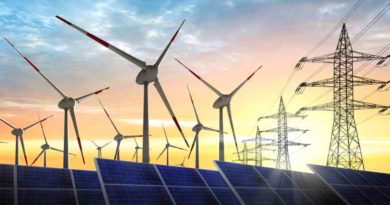
Energy efficiency first: a sure bet!
Energy efficiency provides major benefits in the way to a clean energy world
Climate change is the greatest challenge of the century and of our generation.
But how do we address it? What usually first comes to mind is the development of renewable capacities.
Energy efficiency comes second and is largely viewed as an adjustment variable.
On the contrary, I believe that energy efficiency is the main building block of the new, clean energy world. In the EU, according to an IEA report (2016), 76% of the emission reductions needed to meet the Paris Agreement should be reached through energy efficiency actions.
Moreover, energy efficiency is what I call a “magic square”. It has only benefits and no downside. Indeed:
› Energy savings improve the comfort of individuals, diminish energy bills, and enhance the competitiveness of industries,
› Energy efficiency creates local jobs, › It also means fewer greenhouse gas emissions,
› And an increased energy independence.
Unfortunately, the importance of energy efficiency is too often overlooked. I believe that companies can clearly drive the push by increasing their investments in energy efficiency. Significant energy saving deposits, largely untapped, exist throughout the value chain.
They concern every sector (commercial & residential buildings, industry, district heating & cooling, agriculture, mobility…) and must mobilize all actors.
At ENGIE, energy efficiency is a pillar of our strategy. 100,000 employees, representing two thirds of ENGIE’s global workforce, already work in energy services.
One of the differentiating services offered by ENGIE is our ability to help our clients reduce their energy consumption. To this end, we are developing our know-how on the valorization of energy uses.
The Group, as a producer of “NegaWatts”, proposes innovative and integrated solutions to meet new needs, by using digital tools. We thus:
› perform energy audits for companies and identify energy savings in buildings by means of connected sensors,
› offer an analysis of invoices,
› develop algorithms to optimize energy performance.
But if we want to meet engagements taken under the “Paris Agreement”, we must change the scale and accelerate the pace of this energy transition. This is why we need a policy impetus by EU if we want to tap the full economic potential of energy efficiency.
The Clean Energy Package (CEP) unleashes an ambition that can go well further
Commission’s proposals within the CEP constitute an ambitious starting point, in particular in setting a target of 30% of energy efficiency by 2030. It is important that this ambition is maintained throughout the legislative process.
The EU needs to consolidate the commitments it has made and, as far as possible, reach the upper bounds of targets discussed between co-legislators.
ENGIE is a strong supporter of a very high and binding energy efficiency target. It would help to mobilize all actors, in particular investors, raising we their awareness on the fundamental changes underway and fostering a clear vision of the future.
Action must be taken to unlock investments in energy efficiency
Delivering energy efficiency per se is rarely the only trigger of an investment. The achievement of projects requires a technical & financial engineering (able to assemble interdisciplinary know-hows and medium and long-term private and public financing) as well as a subtle customer focused approach (able to offer a good proposal).
New mechanisms need to be put in place. Achieving energy saving operations for individuals is for instance more complex because it is difficult for these customers to commit them- selves over several years.
To implement energy efficiency projects on the ground, it is also essential to favor:
› Simplified contractual models.
Simplification of the use of energy performance contract at all levels of local authorities and state services should be promoted. Under these contracts, energy performance is measured and verified during the contractual term, with an economic performance incentive.
Furthermore, the integrated approach in the framework of an EPC is an exception that needs to be extended in the context of public procurement.
› Generalization of energy saving certificates (ESC).
This system, which is based on an energy saving obligation imposed by public authorities on energy sellers, makes it possible to boost renewal of obsolete energy equipment, to develop insulation devices for buildings, or to equip greenhouses with efficient heating systems. ESC should be extended to all sectors with unexploited energy savings.
› Strong reliable price signals.
The price of carbon has a direct impact on the profitability of energy efficiency projects in the industrial sector. The reform of the European carbon market (EU-ETS) is a step in the right direction, but it will unlikely be sufficient to reach the medium and long-term commitments of the Paris Agreement.
Complementary measures such as a carbon floor price are needed to strengthen the carbon price signal.
Energy efficiency must be more than a slogan. It creates a win-win-win situation, by fighting global warming, creating new jobs, increasing the purchasing power of individuals and the competitiveness of companies.




